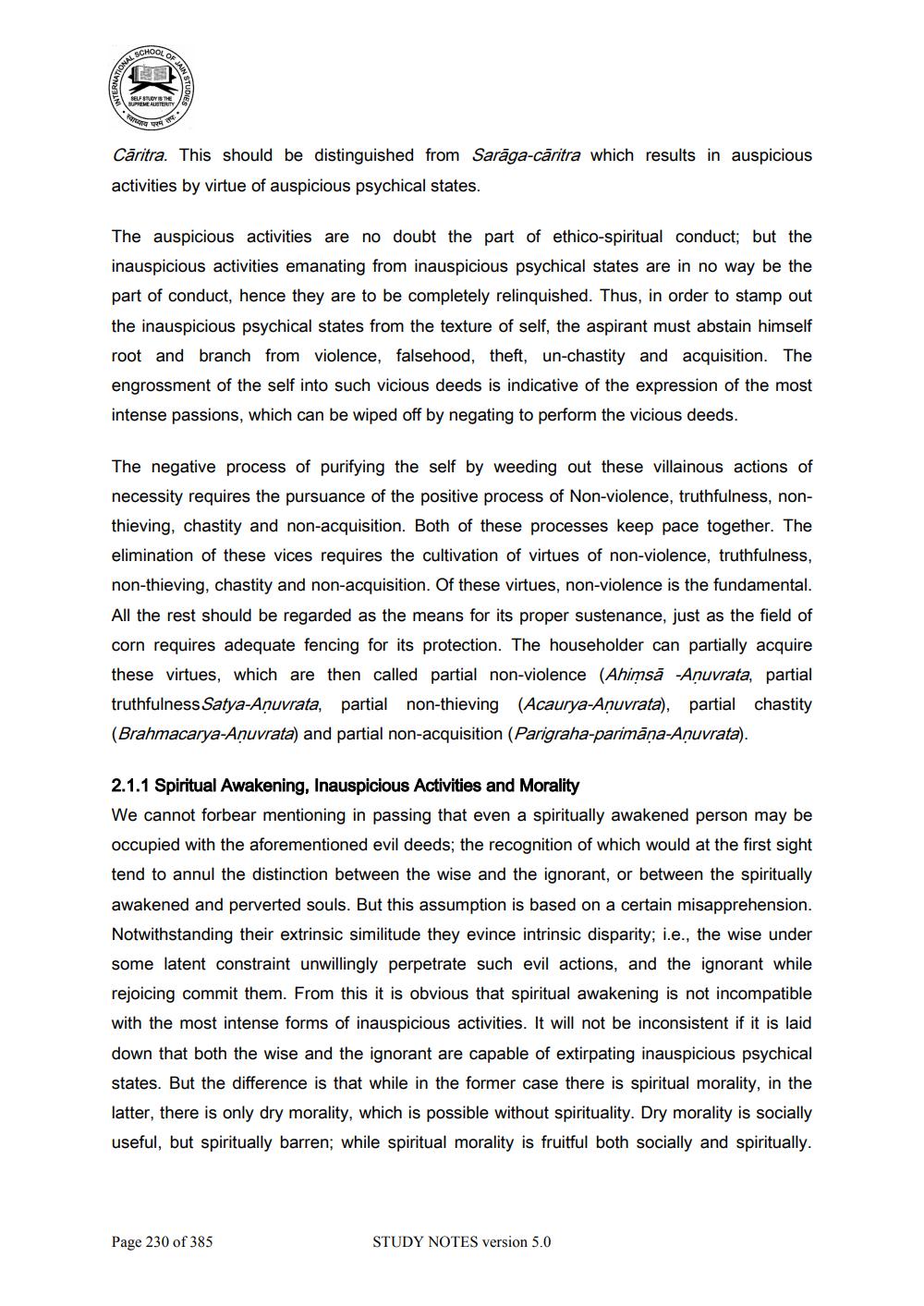________________
अध्याय पक्ष
Caritra. This should be distinguished from Sarāga-caritra which results in auspicious activities by virtue of auspicious psychical states.
The auspicious activities are no doubt the part of ethico-spiritual conduct; but the inauspicious activities emanating from inauspicious psychical states are in no way be the part of conduct, hence they are to be completely relinquished. Thus, in order to stamp out the inauspicious psychical states from the texture of self, the aspirant must abstain himself root and branch from violence, falsehood, theft, un-chastity and acquisition. The engrossment of the self into such vicious deeds is indicative of the expression of the most intense passions, which can be wiped off by negating to perform the vicious deeds.
The negative process of purifying the self by weeding out these villainous actions of necessity requires the pursuance of the positive process of Non-violence, truthfulness, nonthieving, chastity and non-acquisition. Both of these processes keep pace together. The elimination of these vices requires the cultivation of virtues of non-violence, truthfulness, non-thieving, chastity and non-acquisition. Of these virtues, non-violence is the fundamental. All the rest should be regarded as the means for its proper sustenance, just as the field of corn requires adequate fencing for its protection. The householder can partially acquire these virtues, which are then called partial non-violence (Ahimsă -Anuvrata, partial truthfulness Satya-Aņuvrata, partial non-thieving (Acaurya-Anuvrata), partial chastity (Brahmacarya-Aņuvrata) and partial non-acquisition (Parigraha-parimāņa-Aņuvrata).
2.1.1 Spiritual Awakening, Inauspicious Activities and Morality We cannot forbear mentioning in passing that even a spiritually awakened person may be occupied with the aforementioned evil deeds; the recognition of which would at the first sight tend to annul the distinction between the wise and the ignorant, or between the spiritually awakened and perverted souls. But this assumption is based on a certain misapprehension. Notwithstanding their extrinsic similitude they evince intrinsic disparity; i.e., the wise under some latent constraint unwillingly perpetrate such evil actions, and the ignorant while rejoicing commit them. From this it is obvious that spiritual awakening is not incompatible with the most intense forms of inauspicious activities. It will not be inconsistent if it is laid down that both the wise and the ignorant are capable of extirpating inauspicious psychical states. But the difference is that while in the former case there is spiritual morality, in the latter, there is only dry morality, which is possible without spirituality. Dry morality is socially useful, but spiritually barren; while spiritual morality is fruitful both socially and spiritually.
Page 230 of 385
STUDY NOTES version 5.0




